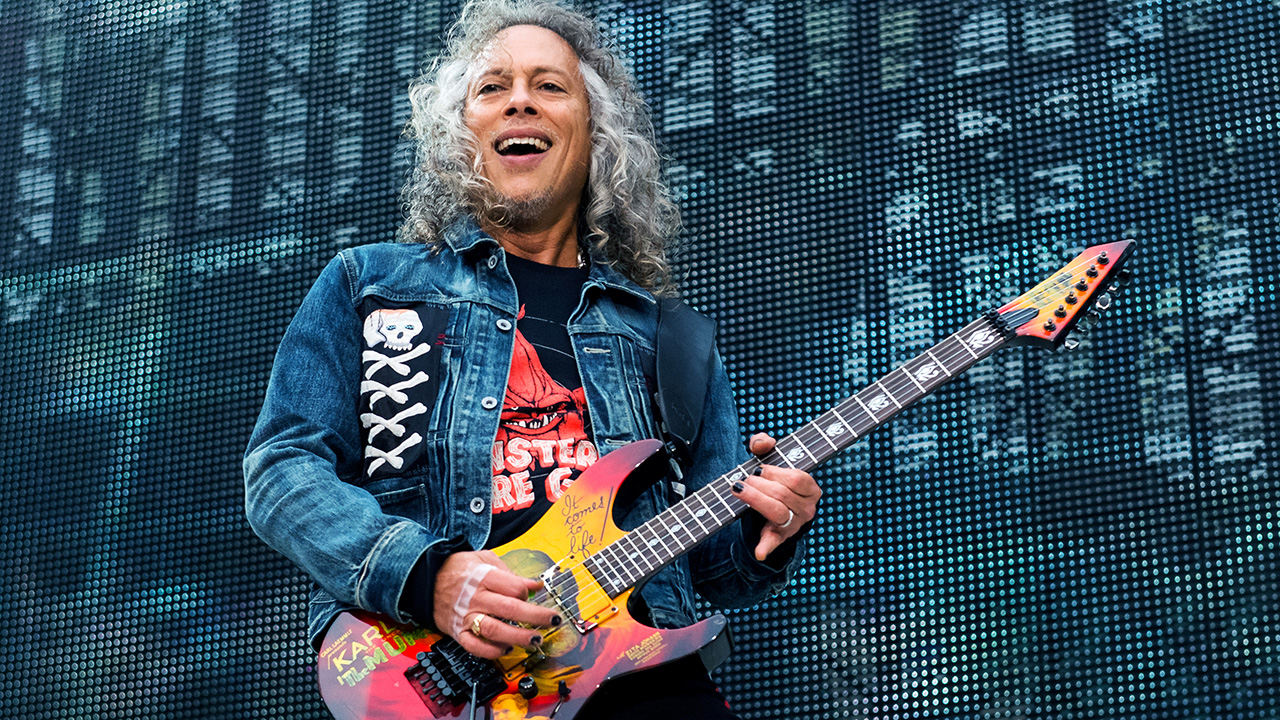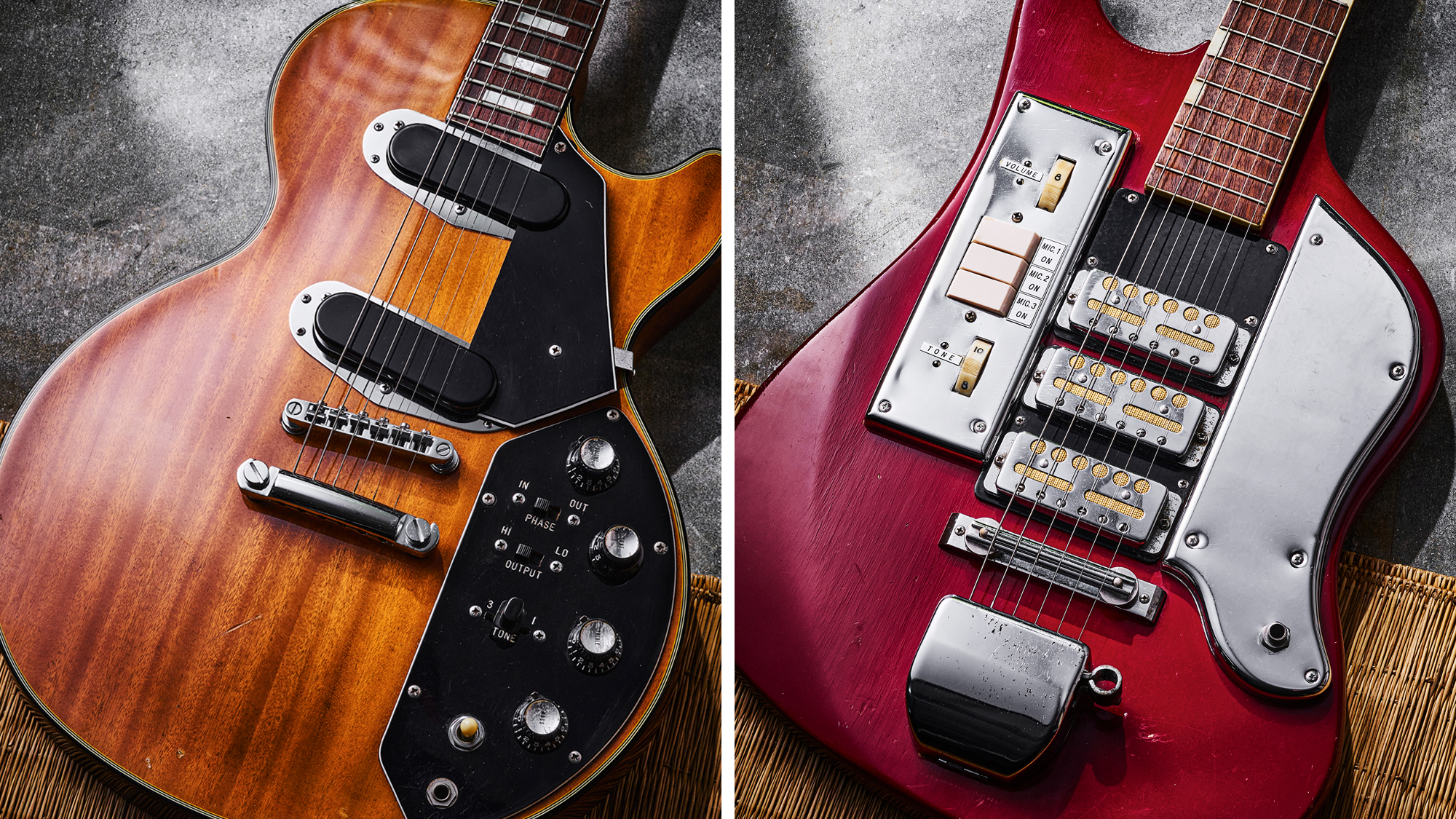Zakk Wylde reflects on Pride And Glory, jamming with the Allman Bros and that time he very nearly joined Guns N' Roses
Ozzy Osbourne's right-hand man on bottling Southern-rock magic for his debut solo release
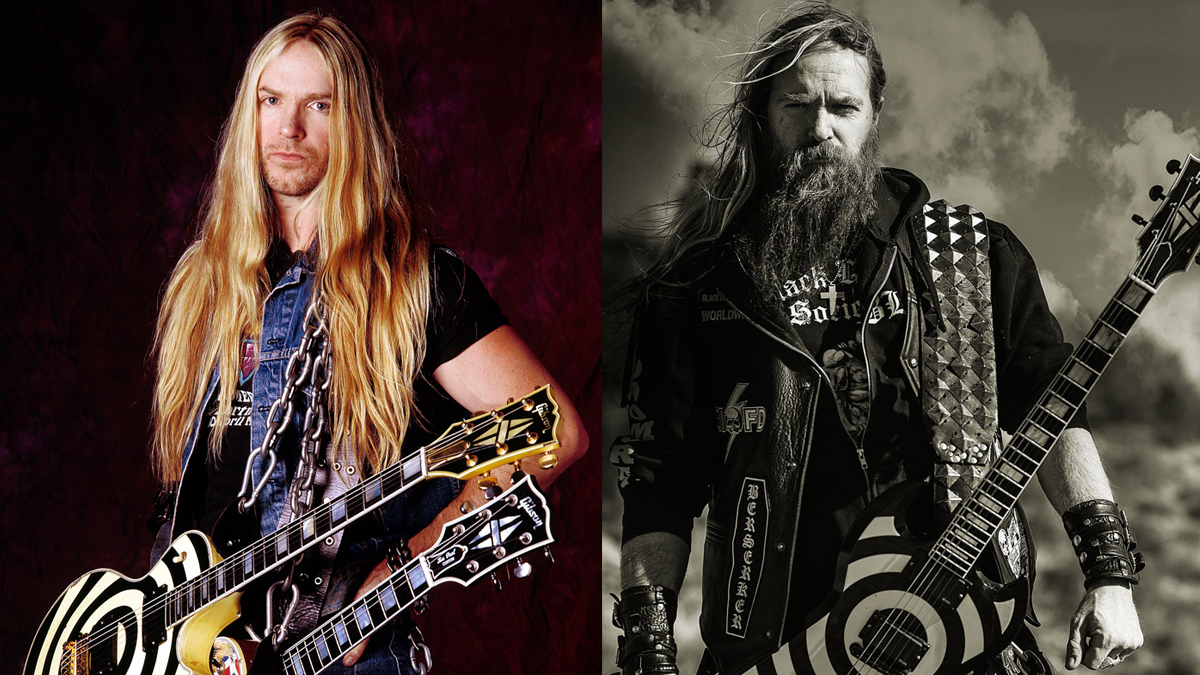
“I guess once we’re done talking, I gotta shave my legs and put my crime-fighting outfit on,” chortles Zakk Wylde, talking to Guitar World a few hours ahead of showtime at Boston’s House Of Blues.
Come to think of it, the 52 year-old New Jersey native would make for an excellent superhero – swinging his signature solidbodies with all the red-eyed ferocity of Thor wielding that mighty hammer. You just know the streets would be a lot safer if SuperZakk was around…
To his legions of fans worldwide, however, the man born Jeffrey Phillip Wielandt is already in possession of potent powers indeed – from his knack for earth-quaking riffs through to through his blazing fast pentatonic mastery.
After joining Ozzy Osbourne’s band at the age of 19, co-writing and recording on 1988’s No Rest For The Wicked and 1991’s No More Tears, he started a project in 1992 called Lynyrd Skynhead which would form the blueprint for Pride And Glory.
Their standalone self-titled album that was released two years later on Geffen Records remains a fan favorite to this day for its southern-fried metallic wizardry, in which Zakk was stepping out as a frontman in his own right. It would eventually pave the path to him forming Black Label Society, which has since become his main vehicle for music.
By his own admission, the mid-'90s were an interesting time for the singer/guitarist – here he reflects on the making of Pride And Glory’s only album, recently reissued with seven bonus tracks, the ingredients to his unmistakable tone and his brief involvement with Guns N’ Roses…
Recording Pride And Glory must have felt completely different to making albums with Ozzy Osbourne – it certainly sounds that way…
Get The Pick Newsletter
All the latest guitar news, interviews, lessons, reviews, deals and more, direct to your inbox!
Pride And Glory felt more like Cream, three guys in a room doing some improv, meets The Allman Brothers
“When we did that one it was like the 360 of doing the Ozzy records where I was doubling all my guitars. I guess Black Label Society is more in tune with that way of working.
“Even the Book Of Shadows [solo] records were more about the songs rather than the improv. That approach is more like building a house starting with the drums, getting takes that everyone is happy with against some scratch guitar and bass tracks which later get redone and doubled and layered.
“But Pride And Glory felt more like Cream, three guys in a room doing some improv, meets The Allman Brothers. Or even The Jimi Hendrix Experience, a power trio going through a ton of jamming.
“When we recorded each take, it was live. That was what we kept. There were very few overdubs on that record. It was just the three of us playing exactly the way we would on stage.”
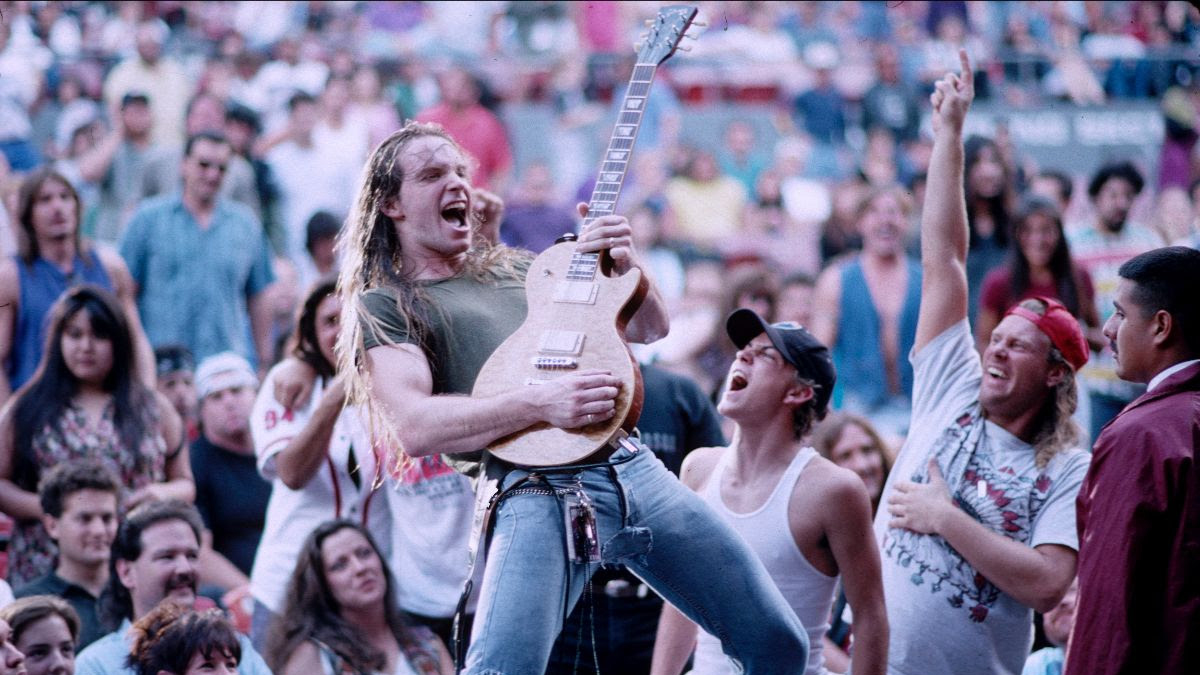
The following year you almost ended up joining Guns N’ Roses...
“It wasn’t so much an audition for me – obviously the guys already knew the kind of guitar I play, between all the Ozzy stuff and Pride And Glory. We were friends anyways so it was just a matter of going down there.
After a while it felt like nothing was happening and Ozzy was telling me, ‘Zakk, if you can’t find out what’s going on with the fellas, I gotta get another guitar player’
“I’d never met Axl before, but I knew Slash, Duff and Steven Adler… I also knew [Adler’s replacement] Matt Sorum as well, from when he was playing in The Cult. I was writing a lot of riffs at the time, and at the same time I was doing [1995 Ozzy album] Ozzmosis.
“After getting back to New York from tracking that, I was home for about a week or so and then Axl said, ‘Hey man, you wanna come down and jam with us?’ And I said, ‘Yeah, no problem!’
“So we did that – Axl was there, as was Slash, Duff, Matt, Dizzy and of course myself. We were just jamming and having a lot of fun. We also recorded some stuff over at Duff’s house.
“But after a while it felt like nothing was happening and Ozzy was telling me, ‘Zakk, if you can’t find out what’s going on with the fellas, I gotta get another guitar player.’ He couldn’t sit there waiting around for me – of course I said, ‘Sure, I understand that Ozz!’”
Presumably you chased for an answer...
“So I remember calling the Guns guys, asking them if we were going to do this because I couldn’t let the boss down. That would be unfair. If it wasn’t for him, I wouldn’t even have been talking to them.
“Eventually, Ozzy said, ‘I gotta make a move dude, I’m going to get somebody else [Joe Holmes]!’ There was nothing I could say; I was completely bummed out because I loved playing with him. I was just in limbo there. Nothing happening with Guns and I wasn’t playing with Ozzy anymore.
“I knew I had to do something. I did Book Of Shadows but I wasn’t ready to do just the mellow stuff like James Taylor. It all came out of that time of my life - that’s how Black Label Society was born…”
Back to Pride And Glory, in stark contrast to its southern musical roots, the album was recorded in Seattle with producer Rick Parashar [Pearl Jam, Alice In Chains]. What made you realize that would be the best way to capture the music you’d written?
To be honest, I’ve never had a bad time making any record – you’re with people you want to hang out with and doing what you love, which is creating!
“We liked some of the stuff Rick had recorded, from Temple Of The Dog to Blind Melon. Those records are really organic in the sense that there’s really not much production – you’re hearing the band, just like those classic '70s recordings.
“If you have a good piece of meat, like a slab of filet mignon, all you need is a little salt and pepper and then grill it. You don’t need much seasoning on it or any sauces. Listen to Robin Trower’s early records or Zeppelin or The Doors, everything going to tape already sounds great and you can hear it.
“We had a great time up in Seattle with Rick. To be honest, I’ve never had a bad time making any record – you’re with people you want to hang out with and doing what you love, which is creating!
“Looking back, this record was a ton of laughs and I remember waking up every day, having a coffee and looking forward to getting back in there. Or if we’d been berserkin’ all night, I might have cracked open another cold one, picked up the acoustic and come out with something like Lovin’ Woman.”
What were your main guitars for the recordings?
“It was pretty much just two Les Pauls, The Grail and The Rebel, basically my Ozzy gear. The same as on No More Tears. I didn’t really bother changing anything. I have friends that are complete tone-chasers and gear hounds… while for me, if it works fine, let’s use it again. The same way whatever Angus used on Highway To Hell or Back In Black worked just fine. Or whatever Billy Gibbons used on Tush or La Grange.
“If you find something that works and sounds right, stick with it. As long as it has everything you need: you turn the volume down it’s clean, turn it up and it’s dirty, and then if you add a distortion pedal, you get more of the sound you like.
“I’ve pretty much carried on using the same gear since then. My Wylde Audio heads follow the same kind of approach as my Marshall JCM800 2203s. It’s a basic design that never goes out of style, just like a pair of Levis and a t-shirt. If it’s reliable, it’s good!”
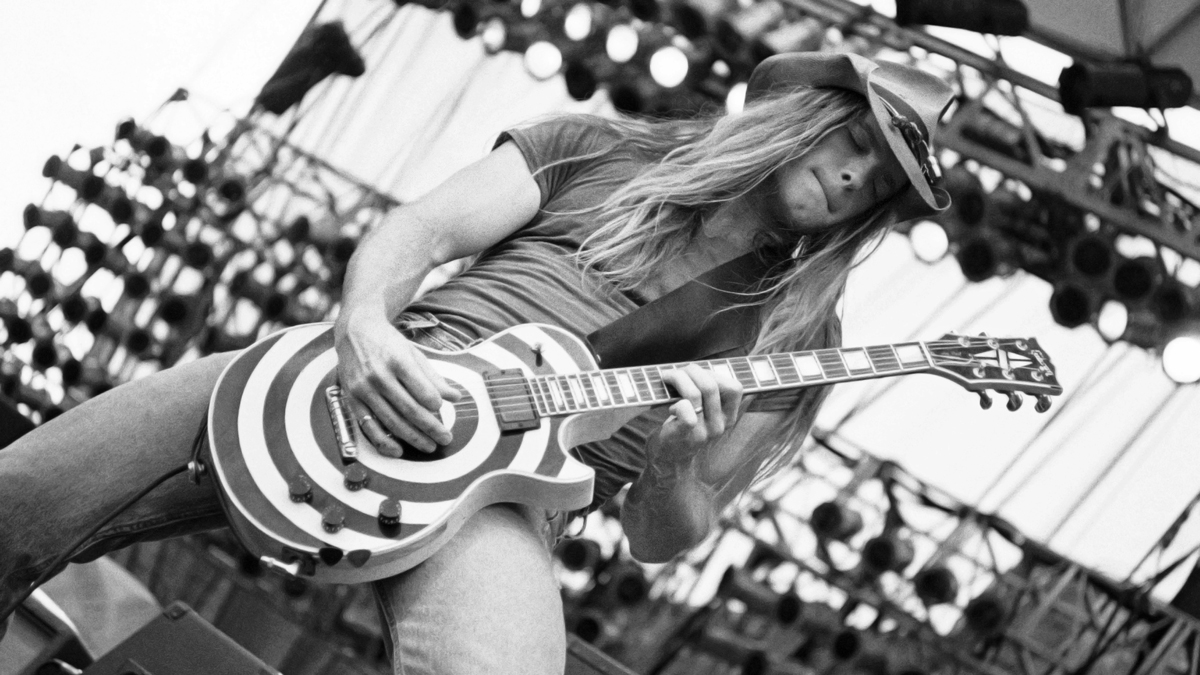
What else can you tell us about the Marshalls that were used on the album?
“They were probably early-'80s models. You can still get them on eBay. Even mine were bought used back then. I just had to make sure they weren’t modded or anything like that, because they don’t need it.
“I always thought that was funny – when you buy a TV, you shouldn’t need to bring it to the repairman to make it look good! It should be more like, buy a new TV, take it home, turn it on and everything works. That’s it. Why would you buy an amp and then pay even more money?! I just never understood that.
“That’s what’s great about those Marshalls. You plug in, they work and you’re ready to record. I used my Dunlop wah - it was probably the standard as my signature one didn’t come out ‘til later. I think I used a Boss SD-1 for extra distortion; that was about it.”
For the acoustic parts, you were using a Gibson Dove a lot around then. Is that what we’re hearing on the softer tracks?
“Yeah, it was the Dove on this album. I actually ended up using the same Dove on the Book Of Shadows stuff, too. It’s a full-bodied kinda instrument but still has all the highs you’d want. It’s perfect for all that singer-songwriter guitar stuff.”
The opening banjo of Losin’ Your Mind sets the tone pretty well...
After first trying it on acoustic, I thought, 'Let’s put the banjo on there and then have the band come crushing in
“I had the initial riff which lent itself well to banjo. After first trying it on acoustic, I thought, 'Let’s put the banjo on there and then have the band come crushing in.' Then on Lovin’ Woman, there’s mandolin and some other stuff.
“That all comes from my love of Cream, Allman Brothers, Skynyrd and The Marshall Tucker Band. I really love that style of music, even now with this whole Zakk Sabbath thing, when we play War Pigs, N.I.B. or Under The Sun – any of the ones with outro jams – we go back to that Cream meets Allman Brothers on steroids kinda thing.
“They end up being 30 minutes long, which is good for people that might want to take a nap or go to the bathroom to watch some porn before coming back, getting another beer and watching the rest of the show. That’s the purpose of any extended jam!”
Around this time, you also had the opportunity of playing with your ultimate heroes in The Allman Brothers. What did you learn from it?
“They were all super-cool and nice to me. I really loved Warren’s playing in the band.
“I remember getting there for soundcheck in the afternoon and Greg was like, ‘Hey Zakk, you know how to play Dreams, brother?’ And I said, ‘Yeah that Molly Hatchet song?!’ Because they did an amazing version of it. But Greg answered, ‘Zakk, man, you keep talking like that and we’re gonna have to send you back home!’”
In addition to some of your Ozzy tracks, you’d already showcased a lot of your major pentatonic country picking in Farm Fiddlin’, which you made for a Guitar World compilation CD back in 1991…
“I remember Guitar World were doing a whole bunch of instrumental things and I got asked to do it, thinking it felt like the perfect outlet to do something like Farm Fiddlin’.
“It all comes from my great love for that style, listening to players like Albert Lee. In fact, I learned a lot of that country pickin’ from an Albert Lee VHS videotape where he showed you all the banjo rolls. That style of playing sounds so musical to my ears.
“Of course, it’s amazing technically to hear a flat-picker just blazing through everything super-clean, but when you start looking into the passing tones, chromatics and slides, it becomes music – not just running through scales and finger exercises.
“Country players know how to speak. Even when you listen to Led Zeppelin doing some of the more mellow stuff like Hey, Hey, What Can I Do or even Ramble On, which has that descending major lick after the second chorus. And bands like The Allman Brothers or Bad Company always used a lot of major thirds, which brings in that uplifting, country-esque kinda flavour.”
Being such an Elton John fan, working with his arranger Paul Buckmaster must have been exciting…
“Paul did the strings for Elton’s Madman Across The Water and all that stuff, so yeah, having him do it for us on this record was pretty mind-blowing. There was the 17-piece Seattle Symphony Orchestra who were in there for The Chosen One and Fadin’ Away, and then just a quartet for Sweet Jesus. Watching all that get recorded – with Paul actually there himself – was pretty amazing and surreal for me.”
You wrote The Chosen One in tribute to your war hero father, who was alive at the time of its release...
Whenever people ask me how to play fast or work on their technique, I always say, ‘Just like John McLaughlin, Al Di Meola, Paco De Lucia, Yngwie, Eddie Van Halen, Saint Rhoads or Steve Morse… you just gotta put the time in!’
“Yeah, I remember when I got home I played it to him. After we’d listened to it, I asked him, ‘So what do you think, Dad?’ And he punched me right in the face telling me he expected more and that it was terrible, haha!
“Then he said, ‘Go upstairs and clean your room, then get out of the house because you and [wife] Barbaranne are staying at the Ramada tonight!’ He told me next time I wrote him a song to make it better than that pile of shit, haha! And then after that, I went and cried in the corner.
“He kicked me in the ass as I left saying, ‘Make sure you bring back some milk and bread if you ever come back!’ Between him and Ozzy, I’m always getting a fatherly beatdown, haha!”
Shine On has some pretty ferocious three-notes-per-string pentatonic runs. Would you say that’s an area you get asked for advice on most?
“The funny thing is whenever people ask me how to play fast or work on their technique, I always say, ‘Just like John McLaughlin, Al Di Meola, Paco De Lucia, Yngwie, Eddie Van Halen, Saint Rhoads or Steve Morse… you just gotta put the time in!’
“It’s like people think all these players I just mentioned woke up one day and were able to shred. And no, it took Eddie Van Halen a while before he could write and play Spanish Fly… it’s called practice.”
Then, of course, there are the cover songs and bonus tracks on the latest reissue – including your version of Come Together...
“Someone asked me at the time, ‘What made you do a Beatles cover?’ And I remember thinking, ‘Who doesn’t like The Beatles?!’ We were probably in the studio talking about how awesome they were.
“I think we listened to the original in the control room, talking about how great the recording was and how flat and dead the drums were, though the rest of the band are really in your face and present.
“I started noodling on the piano, doing the Come Together thing and then we just tracked in D minor. The saddest of all keys! We were drinking and having a good time, so we figured we might as well add that in there, too.
“I always felt covers made for cool bonus tracks because you’re not giving away your own songs for the next album or whatever. A lot of the time, people don’t actually get round to hearing bonus tracks. Plus covers are fun to do anyway, playing music made by bands you love…”
Is there a track on the album you’re particularly proud of?
Every song is like a different slice of pizza. One has garlic and mushrooms, another has onion and basil, there’s another with sausage… it just depends what mood you’re in
“With every record I’ve done, including the Ozzy stuff, I’ve ended up being proud of them all.
“Every song is like a different slice of pizza. One has garlic and mushrooms, another has onion and basil, there’s another with sausage… it just depends what mood you’re in, but they’re all good!
“I guess I especially dig Sweet Jesus, Fadin’ Away, The Chosen One, Cry Me A River, Lovin’ Woman, Losin’ Your Mind…”
You just named virtually every track on the album, Zakk!
“They all have their own place, haha! Found A Friend came out really cool - it reminds me of a Sam Cooke or Percy Sledge kinda thing, which is a style and era of music I’m a big fan of. If I had to pick one song… I’d still just try to pick them all!”
Looking back, these years were incredibly impactful and fruitful for the career you enjoy today, with the flexibility between numerous projects on the go...
“I’m blessed in the regards that I get to play whatever I want. It’s like Neil Young and Crazy Horse. I have all the freedom in the world to write what I want to play. You can be your own Salvador Dali.
“I guess I just enjoy the process of writing chords and coming up with melodies, or constructing a guitar solo that fits like what I did on Cry Me A River with all the pedal-steel stuff.
“It all comes from the Randy Rhoads university of how to write solos – they need to have a beginning, middle and end. Look at the Stairway To Heaven or Hotel California solos, you can sing those melodies. When you see a cover band doing it, you want to hear it exactly as is. That’s all you can hope for!”
Amit has been writing for titles like Total Guitar, MusicRadar and Guitar World for over a decade and counts Richie Kotzen, Guthrie Govan and Jeff Beck among his primary influences as a guitar player. He's worked for magazines like Kerrang!, Metal Hammer, Classic Rock, Prog, Record Collector, Planet Rock, Rhythm and Bass Player, as well as newspapers like Metro and The Independent, interviewing everyone from Ozzy Osbourne and Lemmy to Slash and Jimmy Page, and once even traded solos with a member of Slayer on a track released internationally. As a session guitarist, he's played alongside members of Judas Priest and Uriah Heep in London ensemble Metalworks, as well as handled lead guitars for legends like Glen Matlock (Sex Pistols, The Faces) and Stu Hamm (Steve Vai, Joe Satriani, G3).
“You run scales so when inspiration and instinct kicks in you're able to keep up with it”: Larkin Poe's Rebecca Lovell explains her “hunt and peck” approach to guitar solos – and how scales can make all the difference
“I wanted to play more, and it was inappropriate with Eric or Roger. I was not the lead guitarist, and I wanted to be”: Clapton, Waters, Satriani and me – Andy Fairweather Low on his greatest collaborations and finally taking center stage











